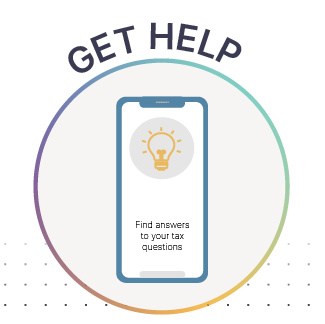First, check your refund status.
It’s helpful to know the official status of your refund. Here’s how to find out:
- IRS.gov “Where’s My Refund?”
- The IRS2Go mobile app
- IRS Refund Hotline – 800-829-1954
- Wait at least 21 days after electronically filing and six weeks after mailing your return to contact the IRS by phone.
See Locating a Refund for more details.
Once you know the status of your refund, you can narrow down what might have happened.
Has the IRS released your refund, but you haven’t received it, or did you request the IRS mail you a refund check?
It’s possible that it was lost in the mail or stolen. Either way, you’ll need to report the missing refund check and have the IRS start a trace. Learn more about tracing a refund in Lost or Stolen Refunds.
Once the IRS determines the check was lost or stolen, it will let you know how to proceed.
Was your refund supposed to go directly to your bank account?
There are a few things that could have happened:
- The bank account information you put on your tax return was incorrect.
- The IRS isn’t responsible if you made an error on your tax return. You’ll need to contact your bank or credit union to find out what to do.
- If you already contacted your bank or credit union and didn’t get any results, file Form 3911, Taxpayer Statement Regarding Refund with the IRS. The IRS will contact the institution and try to help, but the IRS can’t require the bank or credit union return the funds.
- The direct deposit information was changed after you reviewed and signed your tax return.
Is the IRS holding on to your refund?
The PATH Act made the following changes, which became effective for the 2017 filing season, to help prevent revenue loss due to identity theft and refund fraud related to fabricated wages and withholdings:
- The IRS may not issue a credit or refund to you before February 15th, if you claim the Earned Income Tax Credit (EITC) or Additional Child Tax Credit (ACTC) on your tax return.
- This change only affects returns claiming EITC or ACTC filed before February 15.
- The IRS will hold your entire refund, including any part of your refund not associated with the EITC or ACTC.
- Neither TAS, nor the IRS, can release any part of your refund before that date, even if you’re experiencing a financial hardship.
The IRS may be reviewing items on your tax return.
See Held or Stopped Refunds for more information.
Did you get a refund, and the amount was less than you expected? Or when you checked the status of your refund, the automated system indicated the IRS had not received your tax return?
You may want to request a transcript of your tax account to see what happened. The IRS may have changed an amount on your tax return during processing, but for some reason you didn’t get a notice, or maybe your tax return wasn’t received by the IRS. A transcript of your account will have information about the receipt and processing of your return
Have you tried to get your refund, and now are having financial hardship?
If you’ve contacted the IRS and tried to get your refund, and not having the money is causing you a financial hardship, the Taxpayer Advocate Service may be able to help.
If none of these seem to fit
If you still aren’t sure what happened with your refund, contact an IRS representative at IRS Tax Help Line for Individuals – 800-829-1040 (TTY/TDD 800-829-4059).






